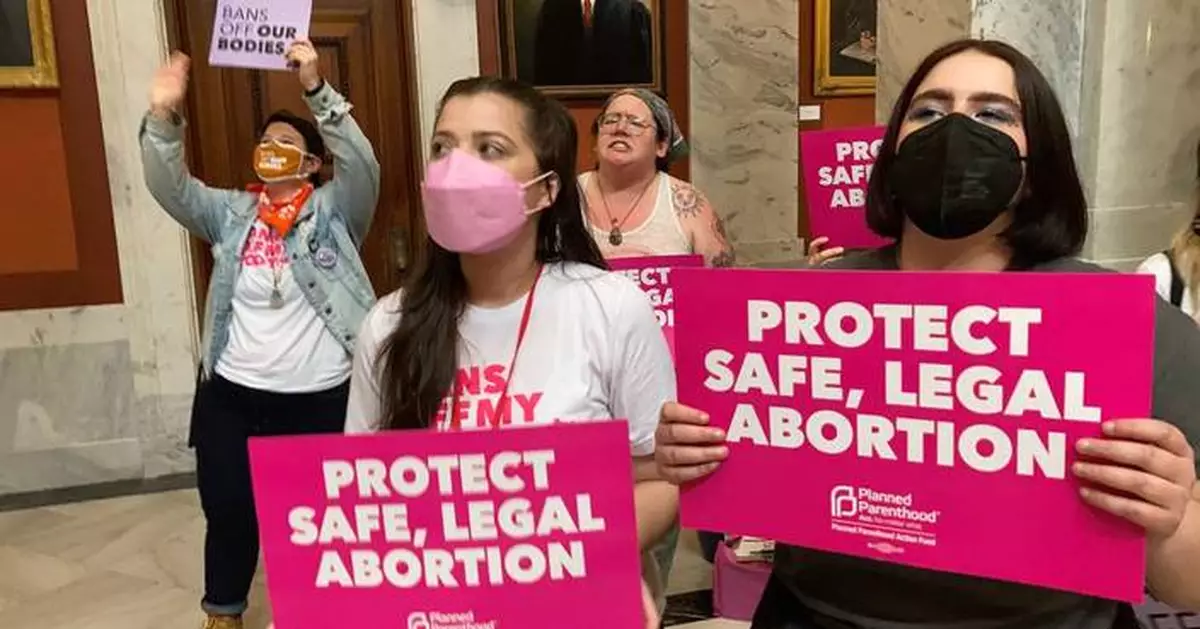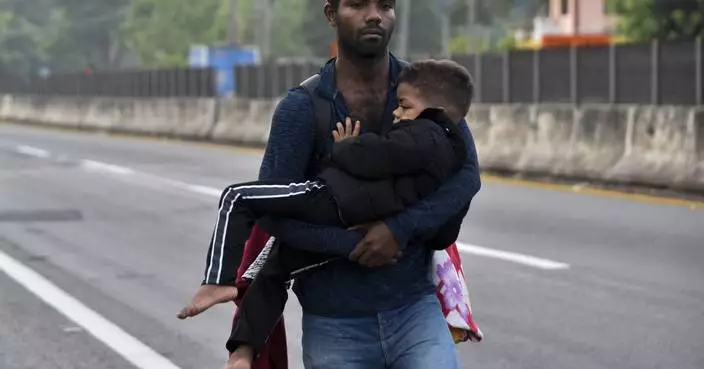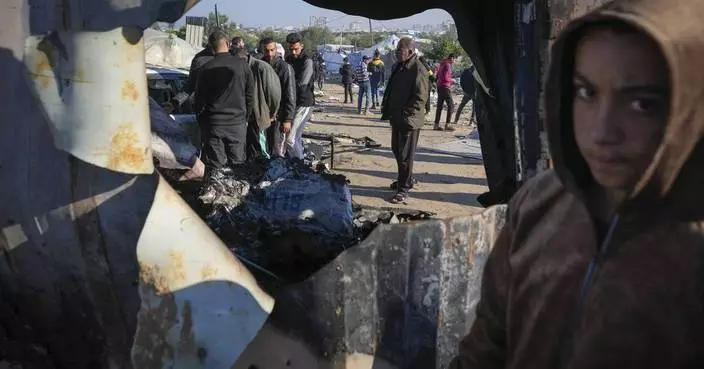LOUISVILLE, Ky. (AP) — A pregnant woman filed a lawsuit Tuesday seeking to restore the right to an abortion in Kentucky in the latest challenge to the state's near-total ban on the procedure.
The suit, filed in state court in Louisville, claims that Kentucky laws blocking abortions violate the plaintiff’s constitutional rights to privacy and self-determination. It asks that both state laws be struck down by a judge in Jefferson County Circuit Court.
The woman, a state resident identified by the pseudonym Mary Poe to protect her privacy, is about seven weeks pregnant, the suit said. She wants to terminate her pregnancy but cannot legally do so in Kentucky, it said.
The decision about whether to become or remain pregnant is among the “most personal and consequential decisions a person will make in their lifetime,” the suit said. Her legal team includes attorneys from the American Civil Liberties Union.
“Without the ability to decide whether to continue a pregnancy, Kentuckians have lost the right to make critical decisions about their health, bodies, lives and futures,” the suit said.
The plaintiff said in a statement that ending her pregnancy is the best decision for her and her family.
“I feel overwhelmed and frustrated that I cannot access abortion care here in my own state, and I have started the difficult process of arranging to get care in another state where it’s legal,” she said in the statement issued by the ACLU of Kentucky. “This involves trying to take time off work and securing child care, all of which place an enormous burden on me.”
Defendants in the latest suit include Russell Coleman, Kentucky’s Republican attorney general.
“It’s the attorney general’s responsibility to defend the laws passed by the General Assembly, and we will zealously work to uphold these laws in court,” Coleman said in a statement.
The suit was quickly denounced as meritless by David Walls, executive director of The Family Foundation, a conservative group staunchly opposed to abortion.
“The ACLU’s suggestion that the Kentucky Constitution somehow secretly contains a hidden right to terminate the life and stop the beating heart of an unborn human being, despite Kentucky’s clear 150-year pro-life history, is absolutely absurd,” Walls said in a statement.
The suit is seeking class-action status to include others who are or will become pregnant and want the right to have an abortion. It is challenging Kentucky’s near-total trigger law ban and a separate six-week ban, both of which were passed by Republican legislative majorities.
The trigger law took effect when Roe v. Wade was overturned by the U.S. Supreme Court in 2022 and bans abortions except to save the life of the patient or to prevent disabling injury. It does not include exceptions for cases of rape or incest.
The lawsuit is similar to legal action taken nearly a year ago, also by a pregnant woman who sought the right to an abortion in Kentucky. That challenge was dropped after the woman learned her embryo no longer had cardiac activity, but abortion rights groups said the legal fight was far from over.
In 2022, Kentucky voters rejected a ballot measure that would have denied any constitutional protections for abortion, but abortion rights supporters have made no inroads in the Republican-controlled Legislature at chipping away at the laws.
Kentucky's Supreme Court refused last year to halt the near-total ban, resulting in abortion access remaining virtually shut off in the. Abortion rights groups have searched for plaintiffs to challenge the ban.
Brigitte Amiri, deputy director of the ACLU Reproductive Freedom Project, said Tuesday that bans in Kentucky and elsewhere have “wreaked havoc on people’s lives.”
“Those who can scrape together the resources may be able to travel out of state to get care, but others will be forced to carry their pregnancies to term against their will, often at great cost to their health or lives,” Amiri said in a statement.
The plaintiff in the new lawsuit said the decision whether to end her pregnancy should be hers.
"I am bringing this case to ensure that other Kentuckians will not have to go through what I am going through, and instead will be able to get the health care they need in our community,” she said.
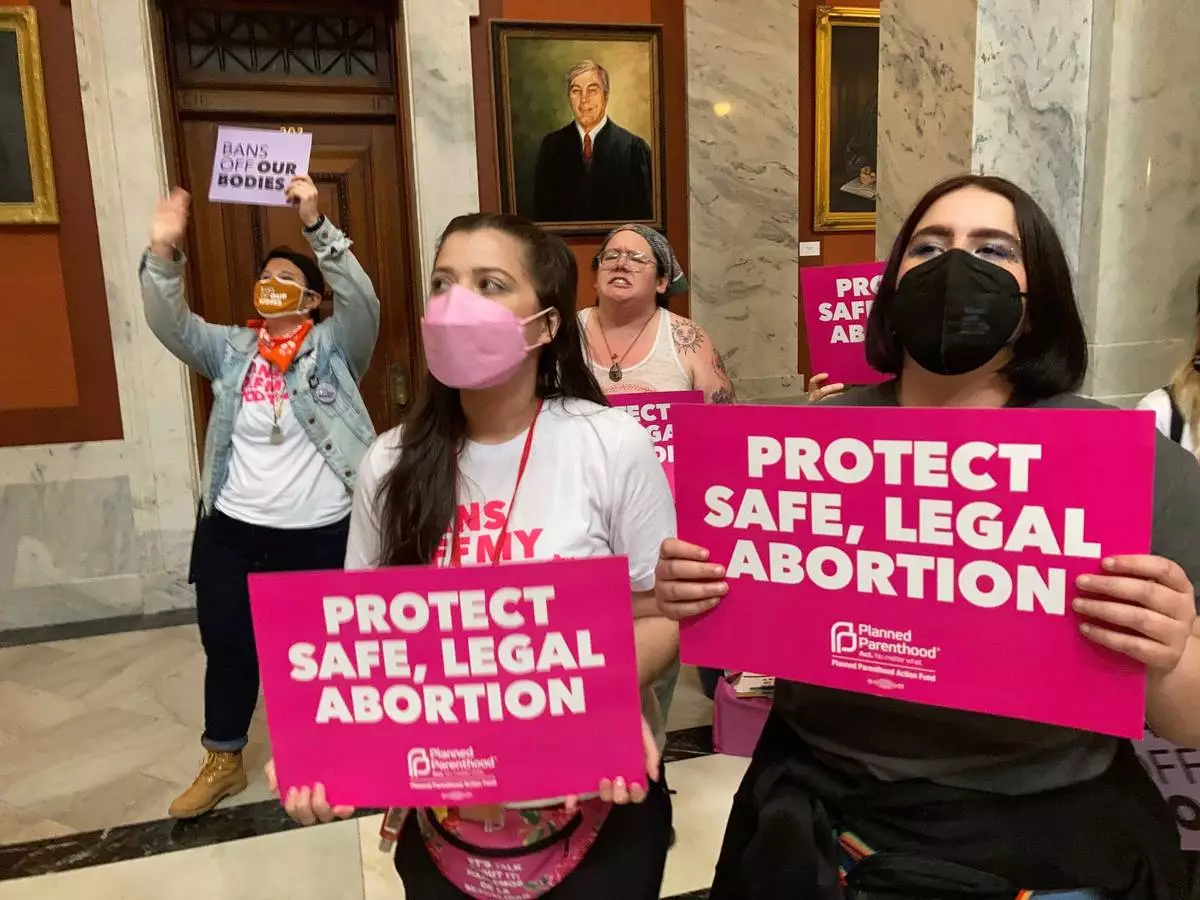
FILE - Abortion-rights supporters chant their objections at the Kentucky Capitol, April 13, 2022, in Frankfort, Ky. (AP Photo/Bruce Schreiner, File)
LAS VEGAS (AP) — The person inside the Tesla Cybertruck that burst into flames outside President-elect Donald Trump’s Las Vegas hotel suffered a gunshot to the head before the explosion, officials said Thursday.
Clark County Sheriff Kevin McMahill said at a news conference that a handgun was found at the feet of the man who's been identified as Matthew Livelsberger. Officials believe the shot was self-inflicted.
Livelsberger served in the Green Berets, highly trained special forces who work to counter terrorism abroad and train partners, the Army said in a statement. He had served in the Army since 2006, rising through the ranks with a long career of overseas assignments, deploying twice to Afghanistan and serving in Ukraine, Tajikistan, Georgia and Congo, the Army said.
He was awarded two Bronze Stars, including one with a valor device for courage under fire, a combat infantry badge and an Army Commendation Medal with valor. Livelsberger was on approved leave when he died, according to the statement.
The FBI said Thursday in a post on X that it was “conducting law enforcement activity” at a home in Colorado Springs related to Wednesday's explosion but provided no other details.
The explosion of the truck, packed with firework mortars and camp fuel canisters, came hours after 42-year-old Shamsud-Din Bahar Jabbar rammed a truck into a crowd in New Orleans’ famed French Quarter early on New Year’s Day, killing at least 15 people before being shot to death by police. That crash was being investigated as a terrorist attack. The FBI said Thursday that they believe Jabbar acted alone, reversing its position from a day earlier that he likely worked with others.
Both Livelsberger and Jabbar spent time at the base formerly known as Fort Bragg, a massive Army base in North Carolina that is home to multiple Army special operations units. However, one of the officials who spoke to the AP said there is no overlap in their assignments at the base, now called Fort Liberty.
Chris Raia, FBI deputy assistant director, said Thursday that officials have found ‘no definitive link’ between the New Orleans attack and the truck explosion in Las Vegas.
Seven people nearby suffered minor injuries when the Tesla truck exploded. Video showed a tumble of charred fireworks mortars, canisters and other explosive devices crowded into the back of the pickup. The truck bed walls were still intact because the blast shot straight up rather than to the sides.
Tesla CEO Elon Musk said Wednesday afternoon on X that “we have now confirmed that the explosion was caused by very large fireworks and/or a bomb carried in the bed of the rented Cybertruck and is unrelated to the vehicle itself."
"All vehicle telemetry was positive at the time of the explosion,” Musk wrote.
Musk has recently become a member of Trump’s inner circle. Neither Trump nor Musk was in Las Vegas early Wednesday. Both had attended Trump’s New Year’s Eve party at his South Florida estate.
Authorities know who rented the truck with the Turo app in Colorado, Kevin McMahill, the elected sheriff of Clark County, which includes Las Vegas, said Wednesday. He did not release the person’s ID, however.
Copp, Richer and Long contributed from Washington.
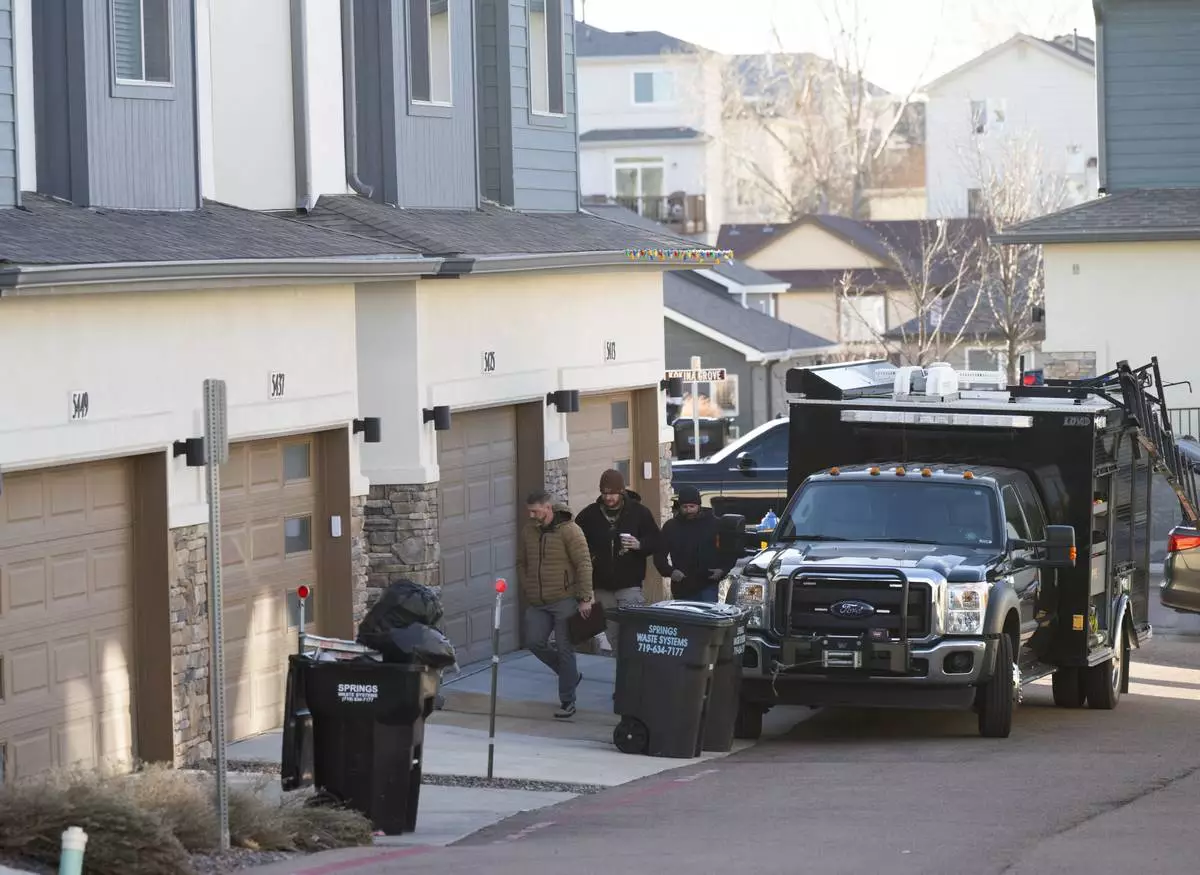
Investigators enter a townhouse in northeastern Colorado Springs, Colo., Thursday, Jan. 2, 2025, as the investigation connected to the explosion of a Tesla Cybertruck outside President-elect Donald Trump's Las Vegas hotel continues. (Christian Murdock/The Gazette via AP)
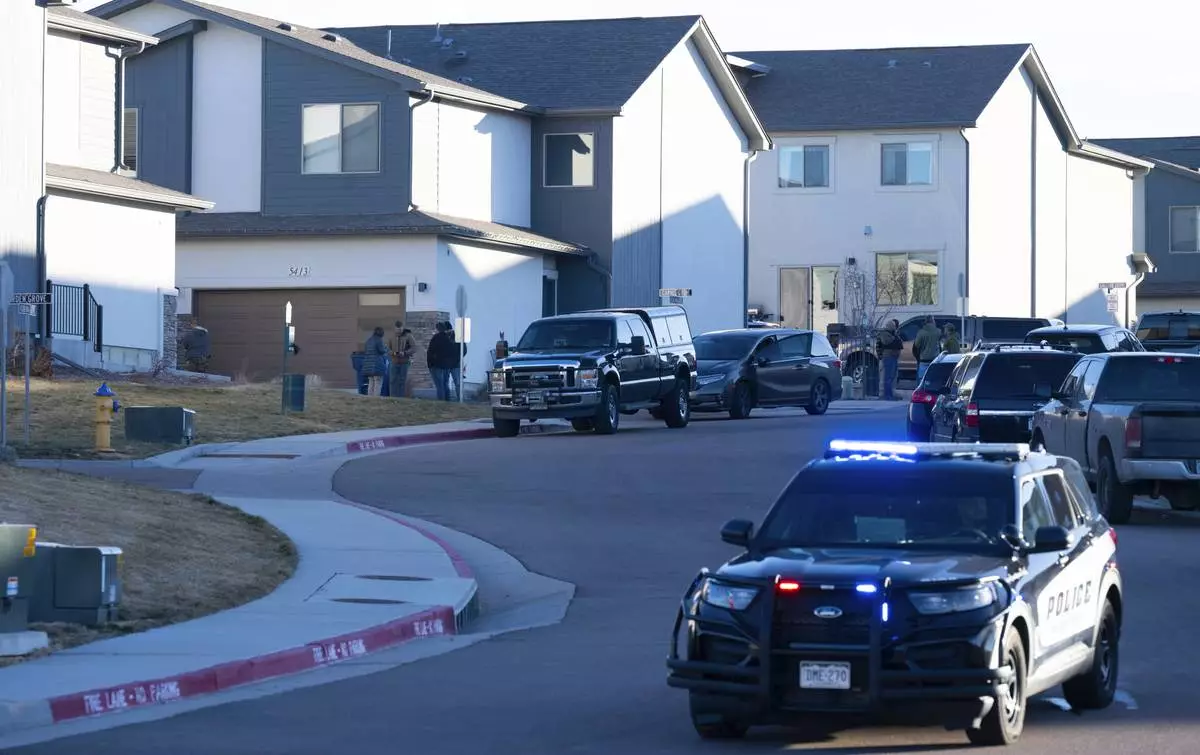
Investigators stand outside a townhouse complex in northeastern Colorado Springs, Colo., Thursday, Jan. 2, 2025, as the investigation connected to the explosion of a Tesla Cybertruck outside President-elect Donald Trump's Las Vegas hotel continues. (Christian Murdock/The Gazette via AP)
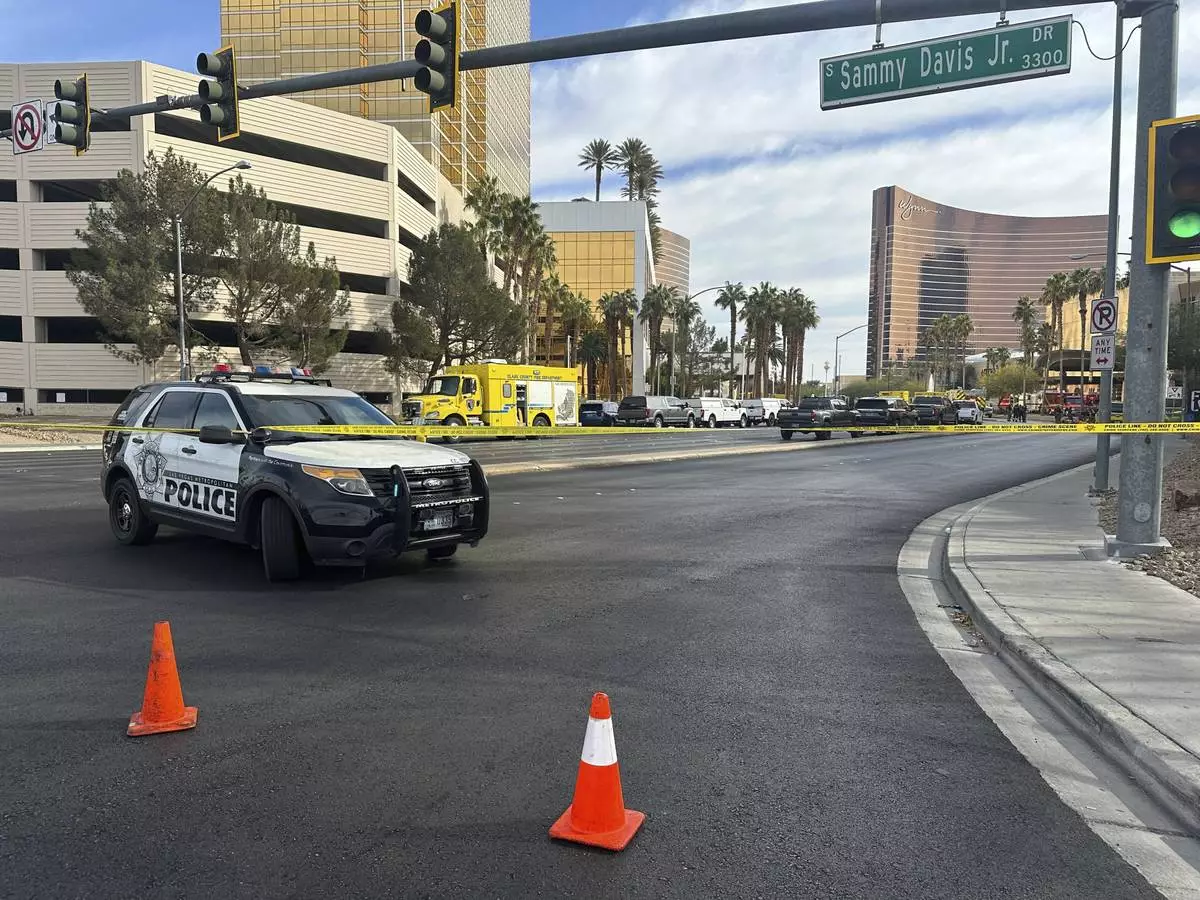
Police block the area after a vehicle caught fire and exploded outside the lobby of President-elect Donald Trump's hotel Wednesday, Jan. 1, 2025. (AP Photo/Ty ONeil)

Police block the area after a vehicle caught fire and exploded outside the lobby of President-elect Donald Trump's hotel Wednesday, Jan. 1, 2025. (AP Photo/Ty ONeil)
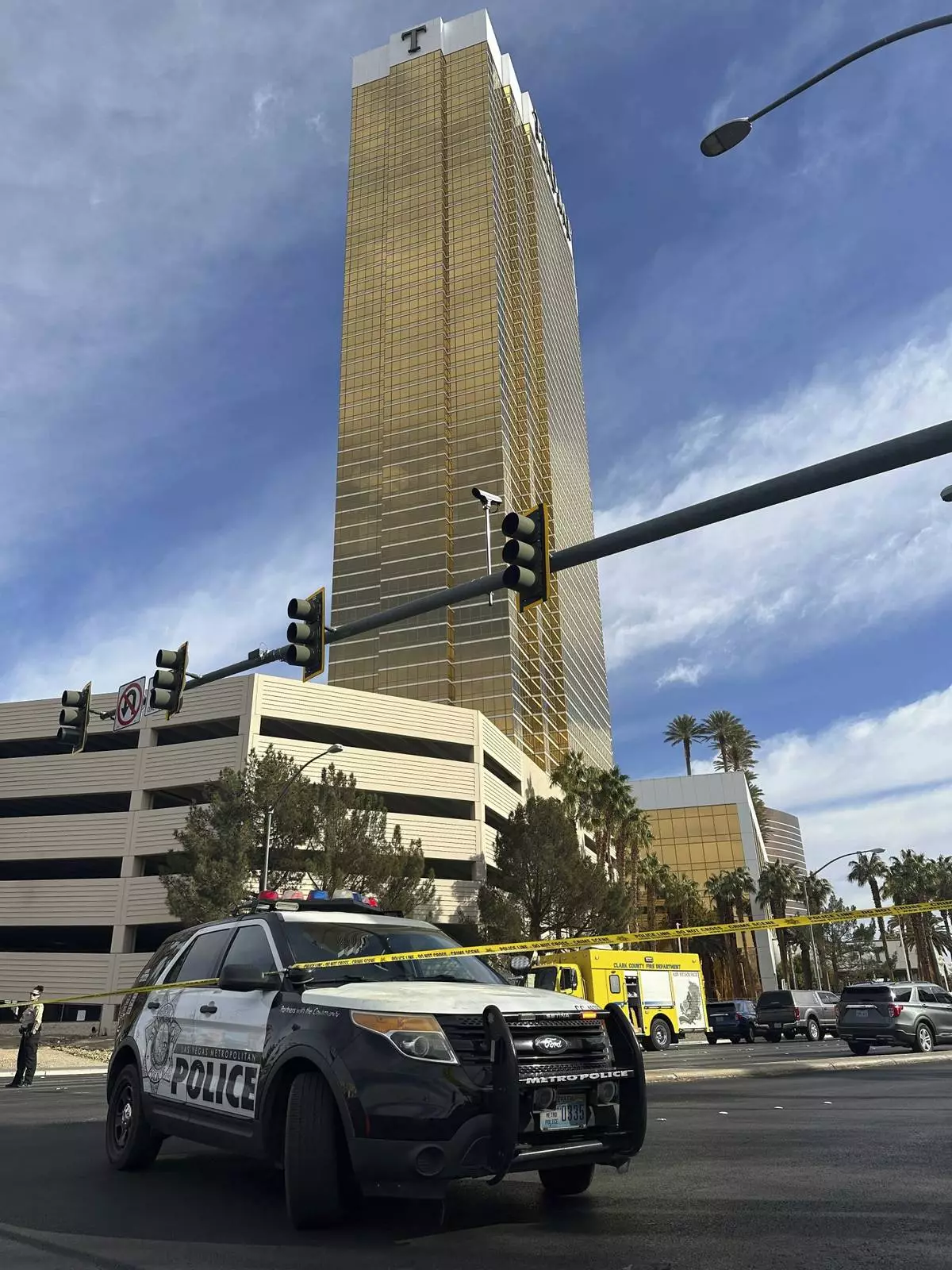
Police block the area after a vehicle caught fire and exploded outside the lobby of President-elect Donald Trump's hotel Wednesday, Jan. 1, 2025. (AP Photo/Ty ONeil)
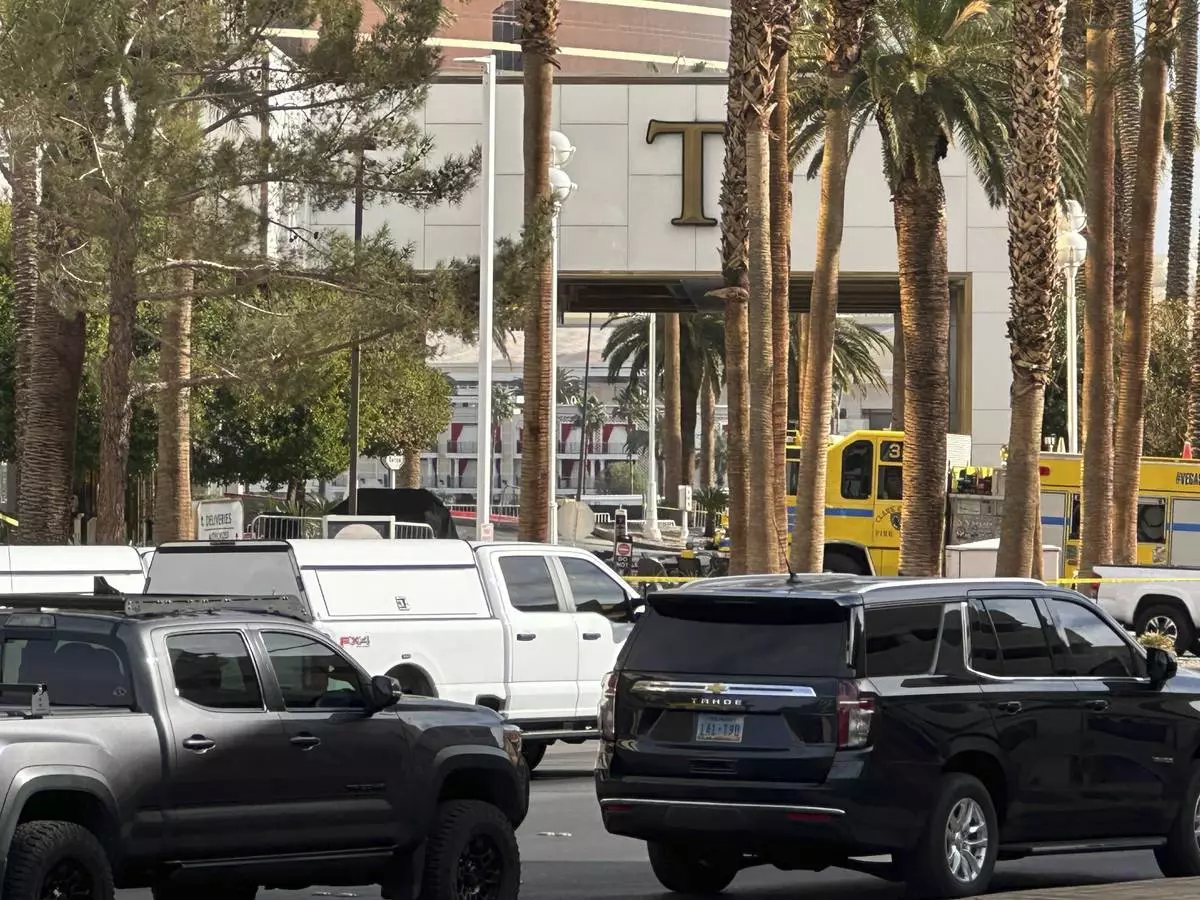
Police block the area after a vehicle caught fire and exploded outside the lobby of President-elect Donald Trump's hotel Wednesday, Jan. 1, 2025. (AP Photo/Ty ONeil)



